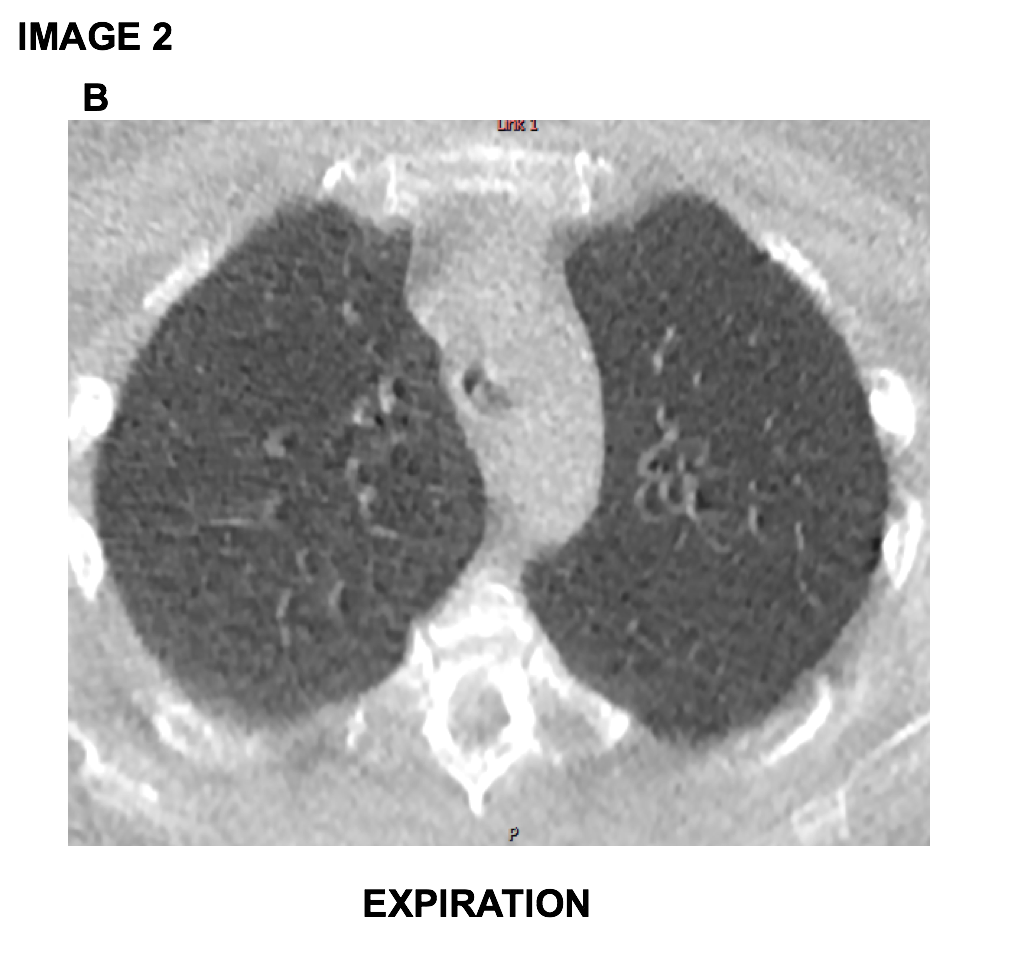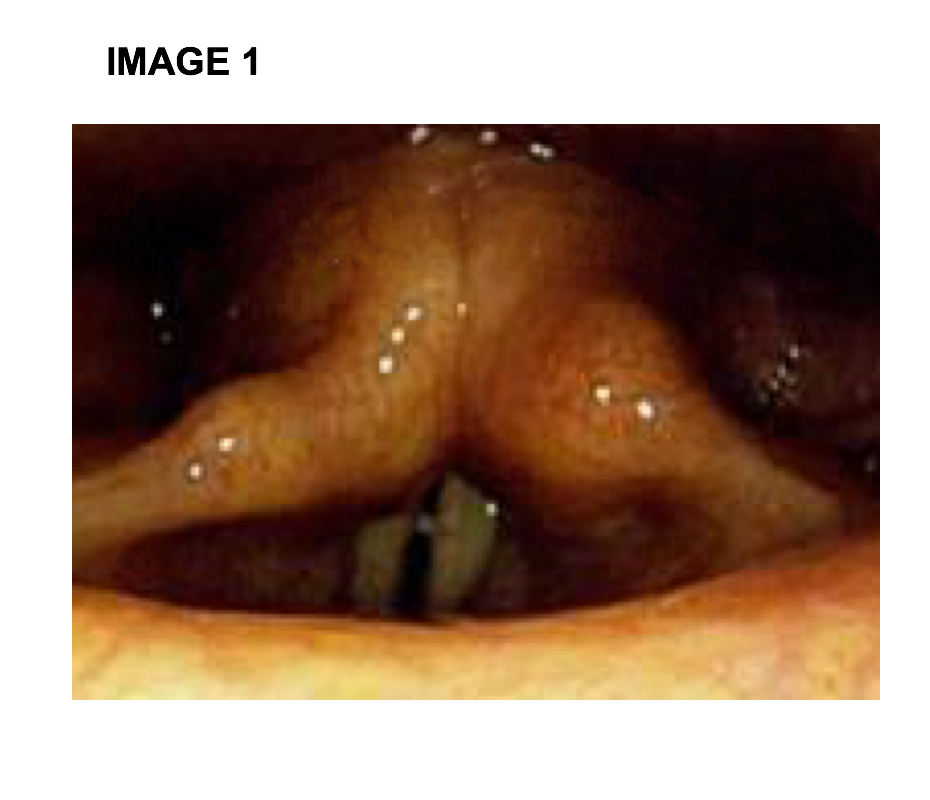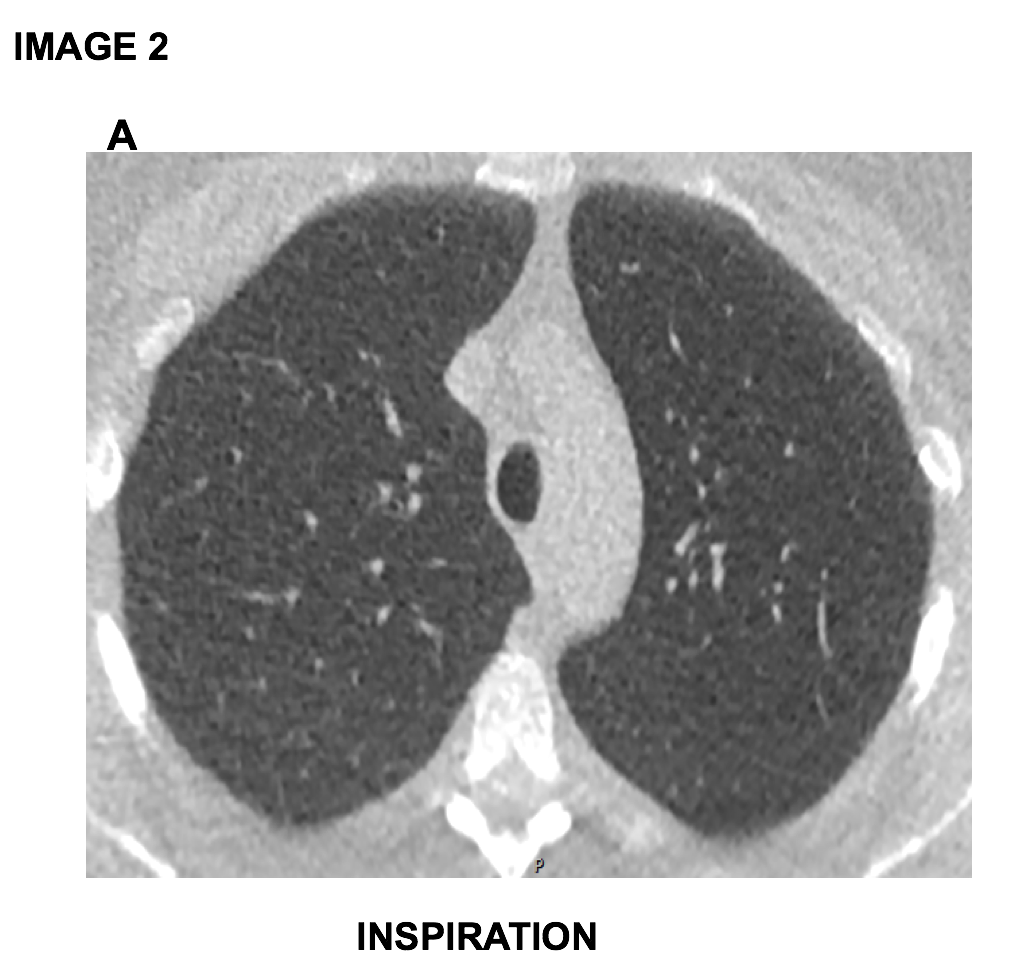Session Information
Session Type: ACR Poster Session B
Session Time: 9:00AM-11:00AM
Background/Purpose:
Relapsing polychondritis (RP) is a rare multiorgan disease. Involvement of the upper and lower airways is associated with significant morbidity and mortality. Isolated airway involvement can be seen in patients with RP. The objective of this study is to determine the prevalence of airway inflammation and damage in patients with RP who endorse clinical symptoms suggestive of airway disease.
Methods:
Patients described in this cohort were selected from a prospective natural history protocol. All patients met McAdams or Damiani’s diagnosis criteria for relapsing polychondritis. Patients were selected if they reported voice changes, choking sensation, shortness of breath or cough. All patients underwent laryngoscopy and dynamic 4D cine computed tomography (CT) scanning of the trachea and central airway obtained during forced exhalation.
Results:
A total of 31 patients have been evaluated in our prospective cohort, 4 adult patients were excluded because of a different CT scan technique was used, 12 patients were younger than 18 years old and one patient did not meet criteria for RP diagnosis. The 14 remaining patients were included in this report. Patient demographic information includes: average age 46.7 years (SD 7.5), 93% female, 86% white. All the patients reported voice changes, dry cough and shortness of breath, and all but one patient reported choking sensation. On laryngoscopy, 86% of the patients had arytenoid swelling (Image 1), 50% of the patients had nasal ulcers, one patient had septal perforation, and no patient had a saddle nose deformity. On dynamic 4D cine CT scans of the airways, 36% of the patients had tracheomalacia, 14% had tracheal calcifications, 14% of the patients had tracheal wall thickening, 14% had bronchomalacia, 21% had bronchial wall thickening, none of the patients had bronchial calcifications, 21% had alveolar opacities and 28 % had air trapping. The percentage of tracheal collapse (Image 2) ranged from 40-87%.
Conclusion:
Airway symptoms such as voice changes, cough, choking sensation and shortness of breath in patients with relapsing polychondritis should be further investigated with laryngoscopy and dynamic 4D cine CT imaging of the airways to assess for airway inflammation and damage. Arytenoid swelling is a common finding in RP and may be indicative of active disease.


To cite this abstract in AMA style:
Ferrada MA, Katz JD, Sikora KA, Clint A, Kim J, Goodspeed W, Colbert R, Chen M, Sirajuddin A, Grayson PC. Airway Findings in Patients with Relapsing Polychondritis [abstract]. Arthritis Rheumatol. 2017; 69 (suppl 10). https://acrabstracts.org/abstract/airway-findings-in-patients-with-relapsing-polychondritis/. Accessed .« Back to 2017 ACR/ARHP Annual Meeting
ACR Meeting Abstracts - https://acrabstracts.org/abstract/airway-findings-in-patients-with-relapsing-polychondritis/
